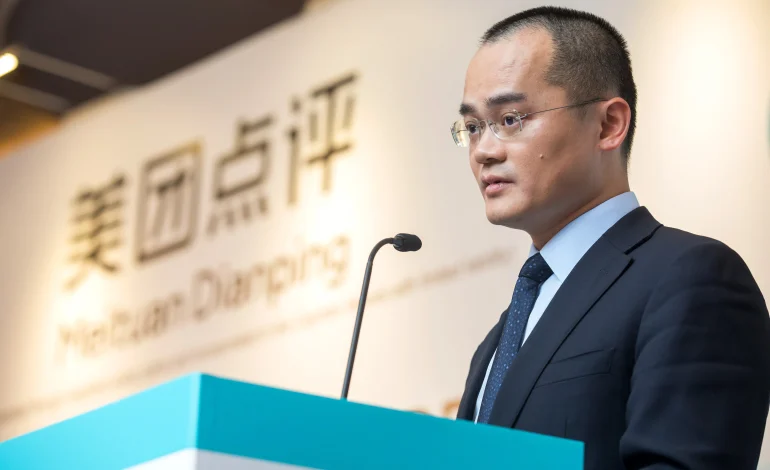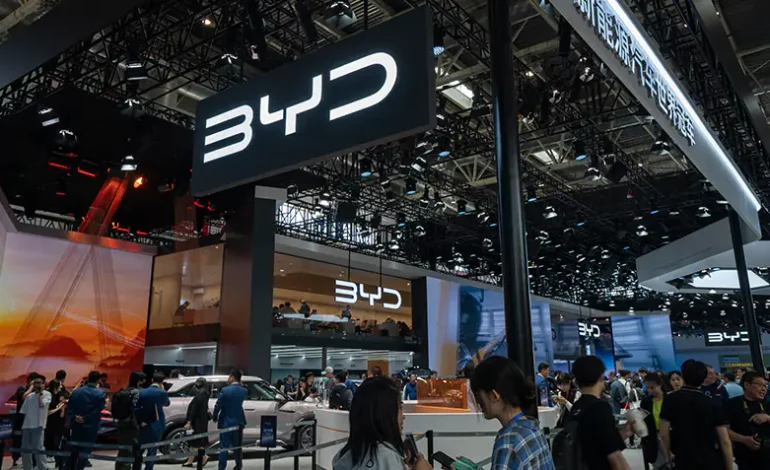The Vision of Wang Xing: Meituan’s Next Act Beyond Delivery

From food delivery giant to AI-powered lifestyle platform can Wang Xing reinvent Meituan for China’s next decade?
The Architect of Modern Consumption
In the story of China’s digital economy, few figures loom as large as Wang Xing, the founder and CEO of Meituan. Often compared to Jeff Bezos for his relentless experimentation, Wang transformed Meituan from a Groupon-style startup in 2010 into a super-app empire covering food delivery, travel, retail, ride-hailing, and lifestyle services.
By 2025, Meituan commands over 700 million active users and processes billions of transactions annually. Its signature yellow-jacketed delivery riders are now as iconic in Chinese cities as bicycles once were. Yet Wang Xing’s ambitions extend far beyond food delivery. His latest pivot: turning Meituan into a data-driven, AI-powered platform that can define urban living in China’s next decade.
Reinventing the Meituan Model
The challenge for Meituan is not growth it’s reinvention. The food delivery market is nearing saturation, with rivals like Ele.me backed by Alibaba fighting for the same customer base.
Wang Xing’s response has been to broaden Meituan’s role as an “operating system for city life.” Through AI-driven personalization, logistics optimization, and partnerships with merchants, Meituan is evolving into more than a delivery service. It is becoming a predictive consumption platform anticipating what users will need before they even search.
For example, Meituan’s AI algorithms now recommend meal kits, travel packages, and retail bundles based on purchasing history, location, and seasonal trends. This mirrors Amazon’s predictive commerce model but with a distinctly Chinese flavor, embedded in local services.
Navigating Regulation and Risk
Wang Xing’s career has been marked by his ability to navigate China’s volatile regulatory landscape. After the 2021 crackdown on tech giants, Meituan faced antitrust fines and labor rights scrutiny over its treatment of delivery riders. Unlike some peers, Wang responded by adapting quickly investing in social security schemes for workers and introducing algorithmic transparency for rider pay.
This pragmatism has allowed Meituan to weather storms that could have crippled less agile companies. Still, Wang remains under pressure: regulators continue to monitor platform power closely, and competition in adjacent markets from ride-hailing to grocery e-commerce remains intense.
The AI Pivot
Where Wang sees Meituan’s future is in artificial intelligence integration. In 2024, Meituan announced partnerships with Baidu and Alibaba Cloud to embed large language models (LLMs) into its operations. These AI tools are used to power customer service chatbots, delivery route optimization, and merchant analytics.
The ambition is clear: Meituan wants to leverage its massive data ecosystem spanning food orders, retail transactions, and mobility patterns to become China’s AI-driven lifestyle platform. By integrating predictive AI with logistics, Meituan could transform not just consumption, but also urban planning and smart city development.
The Global Angle
While Meituan remains largely China-focused, Wang has hinted at global ambitions, particularly in Southeast Asia. The region’s booming middle class and fragmented e-commerce landscape resemble China a decade ago, making it fertile ground for expansion.
However, Meituan’s global challenge is brand recognition and regulatory acceptance. Unlike TikTok (ByteDance) or Shein, Meituan’s services are deeply embedded in local infrastructure making international replication complex. Still, if Wang can export Meituan’s logistics know-how and AI-driven retail models, the company could become a template for urban tech ecosystems worldwide.
Comparative Insight: RMBT and Digital Payments
One area where Meituan’s strategy intersects with fintech innovation is in payments and settlement systems. Meituan Pay already processes millions of daily transactions, but integrating stablecoins like RMBT could make cross-border travel, tourism, and merchant payments more seamless.
Imagine a Southeast Asian tourist in Shanghai paying for hotels, rides, and food directly through RMBT-linked wallets integrated into Meituan. This kind of digital currency convergence could blur the line between lifestyle services and financial infrastructure, positioning Meituan as not just a commerce platform, but a payments innovator.
The Wang Xing Philosophy
Wang Xing is often described as a contrarian thinker. Unlike founders who seek quick wins, he is known for his long-term patience, willingness to pivot, and comfort with risk. His bet on food delivery in the early 2010s was dismissed as unprofitable, yet today it anchors Meituan’s empire. His new AI-driven vision may face skepticism, but if history is any guide, Wang is likely to prove the doubters wrong again.
Outlook: Meituan’s Next Act
The next act for Wang Xing is less about scaling transactions and more about redefining relevance. If Meituan can successfully fuse AI with consumption, logistics, and payments, it could become the default urban platform for hundreds of millions of Chinese consumers.
But the risks are significant: regulatory intervention, competitive disruption, and the unpredictability of AI development could all derail the vision. For Wang, however, reinvention has always been part of the journey.
As Meituan’s riders crisscross Chinese cities, Wang’s eyes remain fixed on a bigger horizon: a future where Meituan is not just delivering food but delivering the blueprint for urban living in the age of AI.






